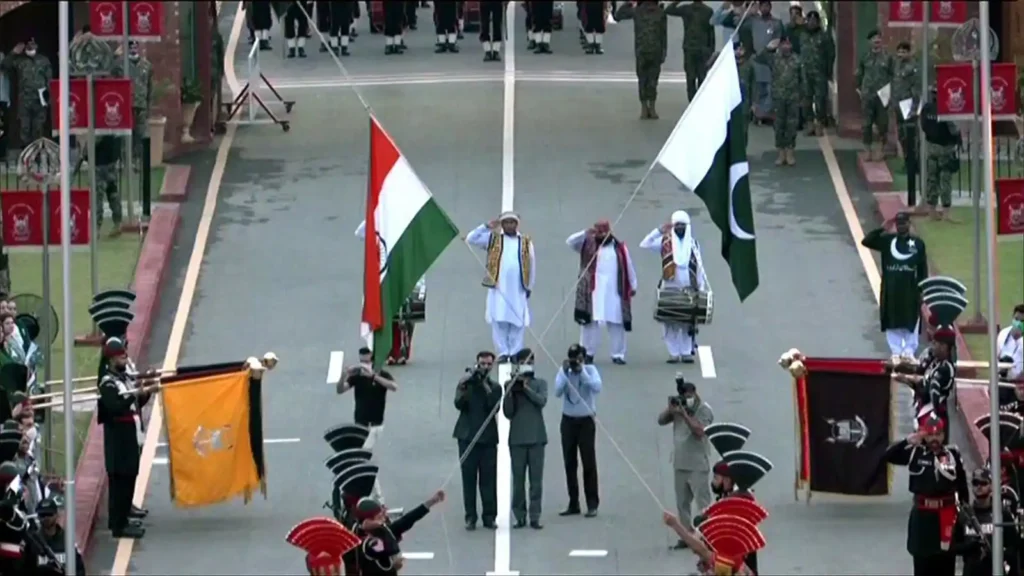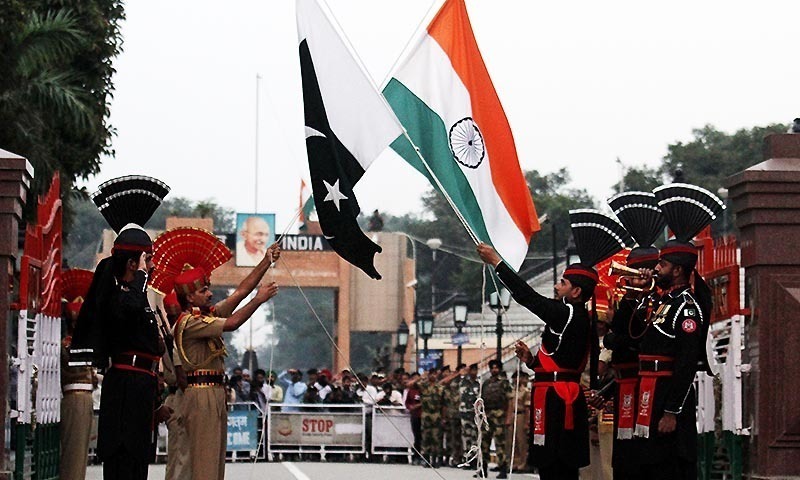ISLAMABAD: The relationship between Pakistan and India further deteriorated as the nuclear-armed neighbors abandoned the tradition and did not exchange formal greetings on their respective independence days for the first time during peacetime.
On August 14, Pakistan celebrated its 77th Independence Day, while India observed its independence day a day later.
August 14 also marked the conclusion of Shehbaz Sharif’s term as prime minister. The outgoing government did not receive a congratulatory message from Indian Prime Minister Narendra Modi.
Simultaneously, Anwaar-ul-Haq Kakar took the oath as the eighth caretaker prime minister of Pakistan. He reciprocated by not sending salutations to India on its independence day.
Indian Prime Minister Narendra Modi also overlooked another diplomatic courtesy – that of greeting a newly appointed head of government.
As of now, today marks Interim PM Kakar’s third day in office, and there has been no message from New Delhi.

no response regarding new trends in Diplomatic relation
The Ministry of Foreign Affairs (MoFA) did not provide any comments regarding the new trends in diplomatic relations, which have worsened due to the current Indian leadership.
The Foreign Office, however, confirmed that no greetings were exchanged between Pakistan and India on their Independence Days.
Relations between the two nations had soured primarily due to India’s consistently belligerent attitude, deteriorating even further since the Bharatiya Janata Party’s (BJP) ascent to power nine years ago under Modi’s leadership.
Modi undermined Saarc by canceling its summit scheduled for Pakistan in November 2016; India also continued to support terrorist activities on Pakistani soil. Indian spy and terrorist Kalbhushan Jadhav is clear evidence of India’s interventionist role in Pakistan; Jadhav was caught in Pakistan as an Indian spy.
Pakistan and India dispute on the Kashmir issue
In August 2019, New Delhi annexed Occupied Kashmir, incorporating it into the Indian Union and revoking the special status of Jammu and Kashmir, an internationally recognized disputed territory between Pakistan and India.
The dispute remains unresolved on the United Nations Security Council’s agenda. In February 2019, India initiated blatant aggression against Pakistani territory, but Pakistan’s armed forces shot down the invading Indian warplanes and captured Indian pilot Abhinandan Varthaman.
In response to the events of 2019, Pakistan curtailed diplomatic relations with India. Since then, both countries have charge d’affaires overseeing their respective missions after expelling each other’s envoys in Islamabad and New Delhi. The diplomatic staff numbers have also been lower by both nations.
Pakistan recently appointed Aizaz Khan as its charge d’affaires in its New Delhi high commission following Salman Sharif’s return to Islamabad. India is also replacing its charge d’affaires, with Apoorva Srivastava possibly taking over from Suresh Kumar, who was posted in Islamabad in December 2020.
The Indian High Commission in Islamabad held a ceremony to commemorate its Independence Day on Tuesday morning but did not invite any Pakistani guests.
Likewise, the Pakistan High Commission in New Delhi hosted a limited reception, but the Indian government prevented Kashmiri leaders from attending.
Diplomatic observers anticipate that, for the upcoming Indian general elections next year, Modi’s BJP will campaign on an anti-Pakistan and anti-Muslim agenda. Given these circumstances, the prospect of improving relations appears minimal, at least until the polls are conducted in India.


